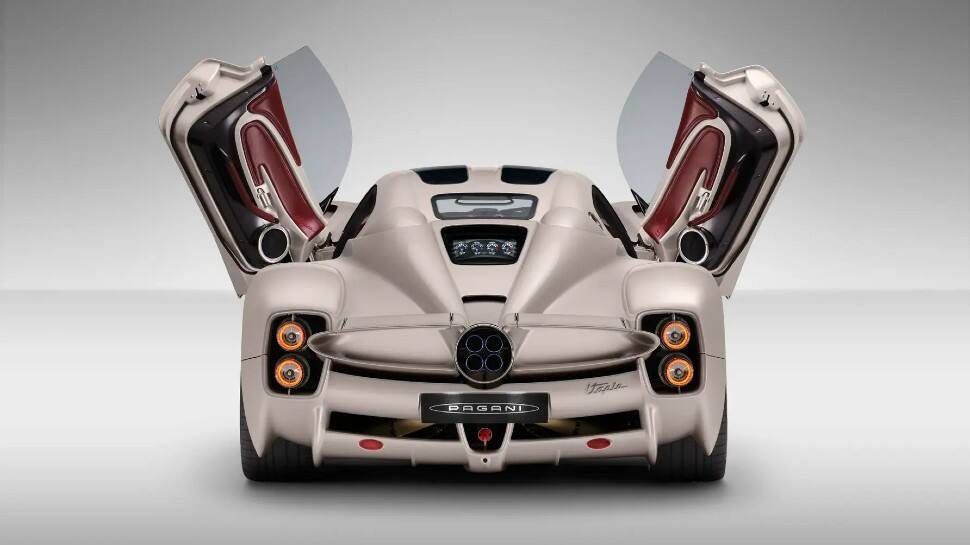Pagani Utopia hypercar unveiled with V12 engine producing 864 hp, details here
The Pagani Utopia carries forward the legacy of the Zonda and Huayra with a simple design and a powerful Mercedes-AMG sourced 6.0-litre twin-turbocharged V12 engine.
- The Pagani Utopia gets a 7-speed manual transmission
- Pagani Utopia has a weight of 1,280 kg
- The car is built on a monocoque chassis
Trending Photos
) Pagani Utopia
Pagani Utopia The list of hypercars from the Italian automaker has increased with the unveiling of the Pagani Utopia. Specifically, this is the third hypercar that carries the name of Horacio Pagani with the moniker Utopia. The car's new name carries a lot of literary weight, with the old-school design and a similar engine to its predecessors. The new Utopia follows the trail of well-established names like Zonda and Huayra. It is to be noted that the hypercar, like any other Pagani, will have limited examples, and only 99 of them will be sold in the world.
The hypercar is powered by the same Mercedes-AMG sourced 6.0-litre twin-turbocharged V12 engine as in Huayra that churns out 864hp and 1,100Nm of peak torque. However, unlike Huayra, Utopia uses the 7-speed manual transmission. Though, the Italian manufacturer has given the option of a 7-speed single-clutch automatic transmission as an option.

The power is transferred to the wheels by the engine is controlled by Brembo carbon-ceramic disc brakes, housed in 21-inch forged alloy wheels at the front and 22-inch wheels at the rear end. All of this is built around a monocoque chassis made using carbon fibre and titanium body panels to keep the body weight light. All of this results in body weight of 1,280 kg, which is around 70 kg lighter compared to the Pagani Huayra.
Also read: Ferrari Purosangue unveiled as brand’s first sports SUV, to rival Lamborghini Urus
Pagani Utopia stands apart from the crowd of hypercars with its simplicity following an aerodynamic body design. Moreover, in the design of the Pagani Utopia, there are hints of the Huayra, with toned-down aggression. The Utopia features a minor nose refresh and does away with the aerodynamic flaps on the bonnet that was present on the Huayra. The fluid design continues down the sides and ends at the rear, where the iconic rocket-style quad exhaust and the fixed bridge spoiler that connects the two rear wings are featured.
Stay informed on all the latest news, real-time breaking news updates, and follow all the important headlines in india news and world News on Zee News.
Live Tv







)
)
)
)
)
)
)
)
)
)
